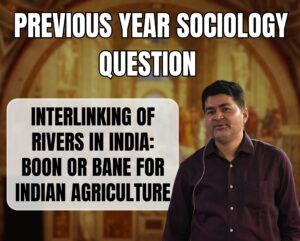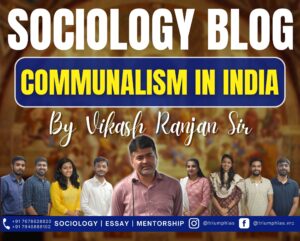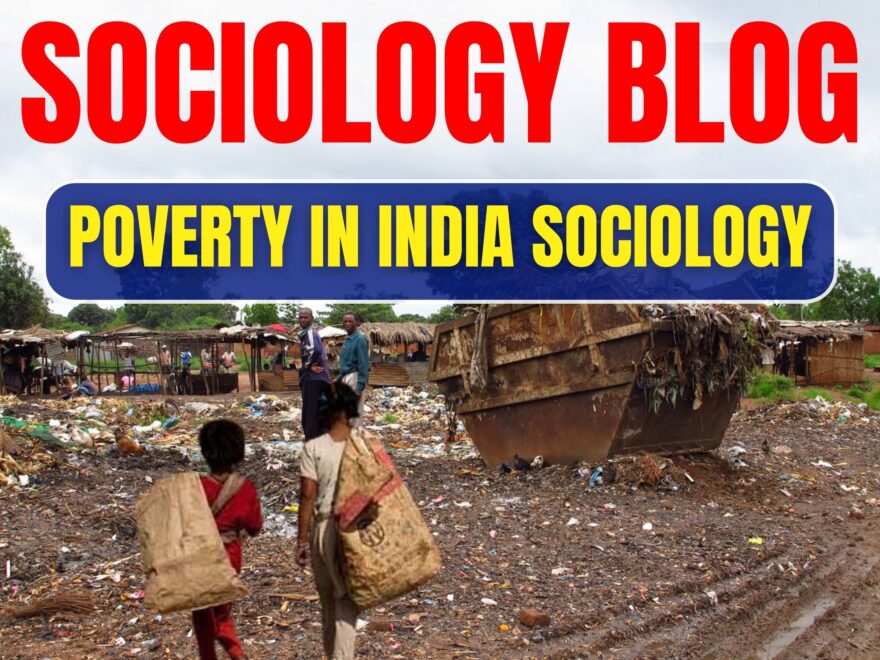Frequently Asked Questions:
- Question: What is the “culture of poverty” concept, and who developed it?
Answer: The “culture of poverty” concept was developed by Oscar Lewis and refers to behavioral patterns that develop among impoverished individuals as a means of surviving difficult conditions.
2. Question: How does the Marxist perspective explain poverty?
Answer: According to the Marxist perspective, poverty is a result of the capitalist economy, where wealth is concentrated among a few who control the means of producing wealth.
3. Question: What is the term “feminization of poverty,” and why is it significant?
Answer: The term “feminization of poverty” refers to the unique aspects of poverty that directly affect women, particularly in rural areas of developing countries, due to gender disparities in income and opportunities.
4. Question: Explain the Dependency Theory in relation to poverty.
Answer: The Dependency Theory argues that poor nations remain impoverished due to historical exploitation by wealthy nations and multinational corporations, which exploited their resources and cheap labor.
5. Question: How does caste-based poverty manifest in India?
Answer: In India, caste-based poverty is linked to certain castes being relegated to low-paying menial jobs for generations, resulting in social and economic exclusion.
6. Question: What are some key reasons for rural poverty in India?
Answer: Key reasons for rural poverty in India include limited economic opportunities, lack of access to quality education and healthcare, agricultural challenges, infrastructure deficits, and social exclusion.
7. Question: How has the political factor contributed to poverty in India?
Answer: Political factors have contributed to poverty in India as the ruling class, both in urban and rural areas, has controlled state power and protected their class interests, leaving the mass of poor people powerless.
8. Question: What is the significance of the regional pattern of poverty in India?
Answer: The regional pattern of poverty in India highlights that poverty varies by state, with some states facing significant poverty challenges while others have succeeded in poverty reduction through various strategies.
9. Question: Why is it important to broaden the concept of poverty into human poverty?
Answer: Broadening the concept of poverty into human poverty is important because it goes beyond the minimum subsistence level of living and considers a reasonable level of living, encompassing various aspects of well-being.
10. Question: What has been the main objective of India’s policies in addressing poverty since independence?
Answer: The main objective of India’s policies in addressing poverty since independence has been promoting rapid and balanced economic development with equality and social justice.
Reference: Static Portion
Related Blogs …
 |
 |

To master these intricacies and fare well in the Sociology Optional Syllabus, aspiring sociologists might benefit from guidance by the Best Sociology Optional Teacher and participation in the Best Sociology Optional Coaching. These avenues provide comprehensive assistance, ensuring a solid understanding of sociology’s diverse methodologies and techniques.
META TAGS:
poverty in India Sociology, causes of poverty, perspectives on poverty, marginalized groups, gender disparities, caste-based poverty, economic factors, social structure, political factors, challenges in poverty reduction, India’s poverty challenges
Why Vikash Ranjan’s Classes for Sociology?
Proper guidance and assistance are required to learn the skill of interlinking current happenings with the conventional topics. VIKASH RANJAN SIR at TRIUMPH IAS guides students according to the Recent Trends of UPSC, making him the Best Sociology Teacher for Sociology Optional UPSC.
At Triumph IAS, the Best Sociology Optional Coaching platform, we not only provide the best study material and applied classes for Sociology for IAS but also conduct regular assignments and class tests to assess candidates’ writing skills and understanding of the subject.
Choose The Best Sociology Optional Teacher for IAS Preparation?
At the beginning of the journey for Civil Services Examination preparation, many students face a pivotal decision – selecting their optional subject. Questions such as “which optional subject is the best?” and “which optional subject is the most scoring?” frequently come to mind. Choosing the right optional subject, like choosing the best sociology optional teacher, is a subjective yet vital step that requires a thoughtful decision based on facts. A misstep in this crucial decision can indeed prove disastrous.
Ever since the exam pattern was revamped in 2013, the UPSC has eliminated the need for a second optional subject. Now, candidates have to choose only one optional subject for the UPSC Mains, which has two papers of 250 marks each. One of the compelling choices for many has been the sociology optional. However, it’s strongly advised to decide on your optional subject for mains well ahead of time to get sufficient time to complete the syllabus. After all, most students score similarly in General Studies Papers; it’s the score in the optional subject & essay that contributes significantly to the final selection.
“A sound strategy does not rely solely on the popular
Opinion of toppers or famous YouTubers cum teachers.”
It requires understanding one’s ability, interest, and the relevance of the subject, not just for the exam but also for life in general. Hence, when selecting the best sociology teacher, one must consider the usefulness of sociology optional coaching in General Studies, Essay, and Personality Test.
The choice of the optional subject should be based on objective criteria, such as the nature, scope, and size of the syllabus, uniformity and stability in the question pattern, relevance of the syllabic content in daily life in society, and the availability of study material and guidance. For example, choosing the best sociology optional coaching can ensure access to top-quality study materials and experienced teachers. Always remember, the approach of the UPSC optional subject differs from your academic studies of subjects. Therefore, before settling for sociology optional, you need to analyze the syllabus, previous years’ pattern, subject requirements (be it ideal, visionary, numerical, conceptual theoretical), and your comfort level with the subject.
This decision marks a critical point in your UPSC – CSE journey, potentially determining your success in a career in IAS/Civil Services. Therefore, it’s crucial to choose wisely, whether it’s the optional subject or the best sociology optional teacher. Always base your decision on accurate facts, and never let your emotional biases guide your choices. After all, the search for the best sociology optional coaching is about finding the perfect fit for your unique academic needs and aspirations.
Follow us :



Find More Blogs
|
Scope of the subject and comparison with other social sciences |
|||
|
|
|
|
Modernity and social changes in Europe |

